Tech trends 2016: Cybersecurity in the connected world
- Published

Cybersecurity concerns will loom large in 2016 for many businesses
This year, cybersecurity will be the main issue vexing global business, firms say, and it will become more critically important as the internet of things takes off and our world becomes ever more mobile and connected.
Lawyers, accountants, digital agencies, research analysts, telecoms and tech firms all gave Technology of Business their views on what the key tech trends were likely to be in 2016.
We received more than 50 submissions - a big thanks to all those who took part. Here's a summary of the main themes that emerged.
The new cybercrime-wave
Allowing customers' data to be stolen by hackers is not good for business, firms are finally realising. It damages corporate reputations and erodes the public's "comfort with sharing their data", says Rashmi Knowles of cybersecurity company RSA.

Top 10 tech trends affecting business in 2016
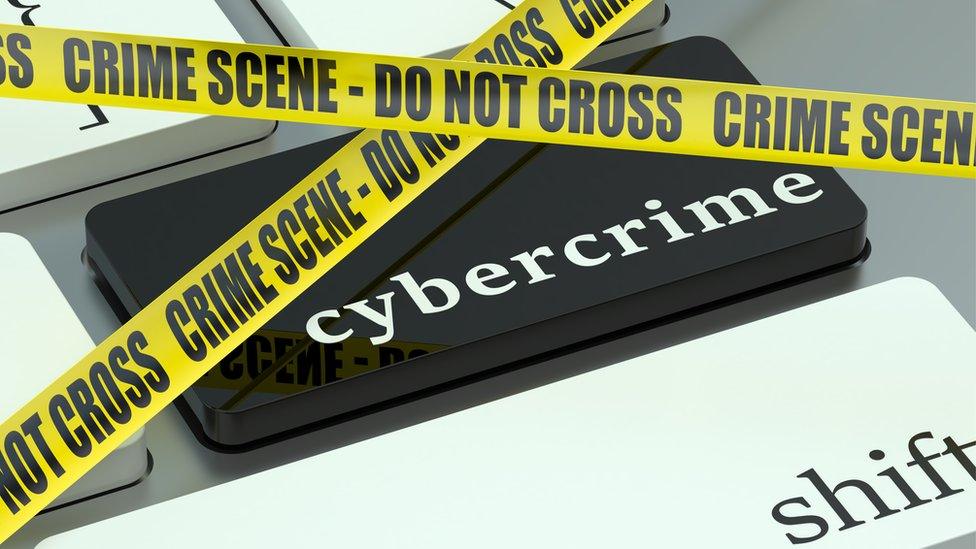
Cybercrime and a renewed emphasis on cybersecurity
The internet of things and the development of the hyper-connected world
Real-time data analytics, not intuition, driving business decisions
New data protection laws forcing firms to rethink compliance strategies
Artificial intelligence and robotics replacing repetitive tasks
Smartphones becoming the primary tool for almost everything
More business applications for virtual and augmented reality tech
Increased personalised and in-store location-based marketing
Drones to be allowed to make deliveries and perform other public tasks
Established businesses to face increased competition from start-ups
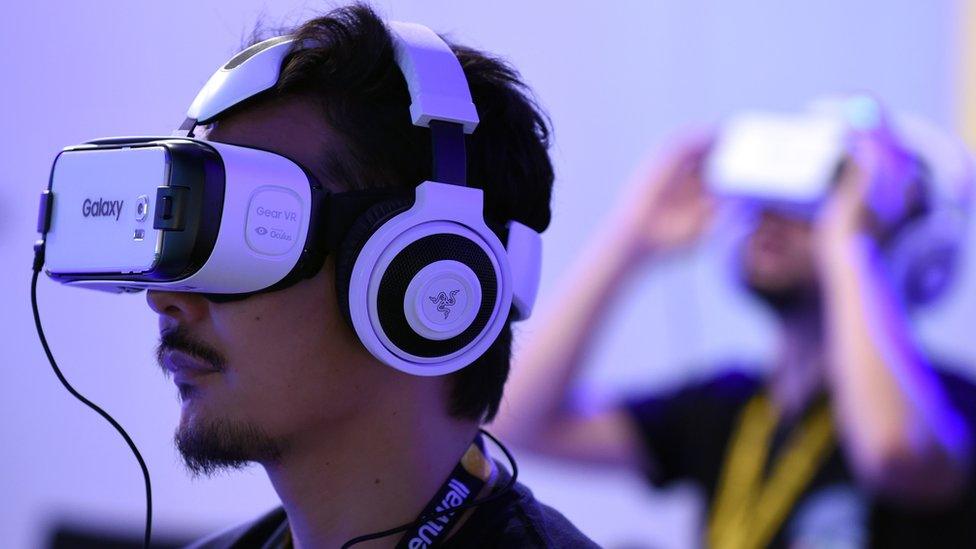
Could 2016 be the year businesses, not just gamers, adopt virtual reality tech?

But the worrying news is that breaches are inevitable, warns Geoff Smith of Experis, while a shortage of skilled cybersecurity professionals is likely to push up the costs of beefing up defences and dealing with attacks.
On top of this, new European data protection laws coming into effect in 2018 will see a "dramatic increase in fines" for data breaches, says James Mullock of law firm Bird and Bird, forcing firms to reassess their compliance procedures this year. Dedicated Data Protection Officers reporting to the board would be "a sensible measure", he says.
Meanwhile, new fronts are opening up for cybercriminals.
Several security experts are forecasting an increase in ransomware attacks, whereby criminals hack into your system, encrypt your data and then demand a ransom before they decrypt it.
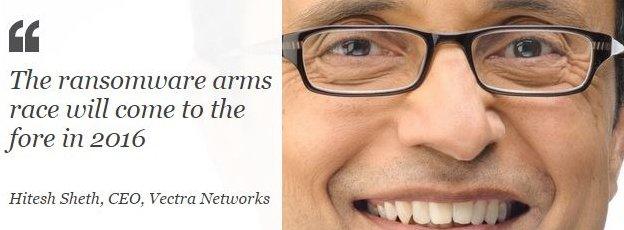
"The ransomware arms race will come to the fore in 2016," says Hitesh Sheth, chief executive of Vectra Networks. "The threat will take on a new, larger role by concentrating attacks on enterprises, holding critical assets hostage in return for even bigger money."
Other experts warn that the growth of mobile payments systems will offer new opportunities for hackers, while others think criminals will increasingly target employees, suppliers and contractors as a way of infiltrating corporate systems.
And Tom Patterson of Unisys raises the alarming prospect of rogue intelligence officers using "government-owned spy capabilities for their own purposes."
'Connected everything'
Gadgets and objects wirelessly transmitting sensor data to each other and central computers will accelerate in 2016, many believe, leading to a host of new applications - and a host of new cybersecurity threats.
This trend is often dubbed the "internet of things", or IoT for short.
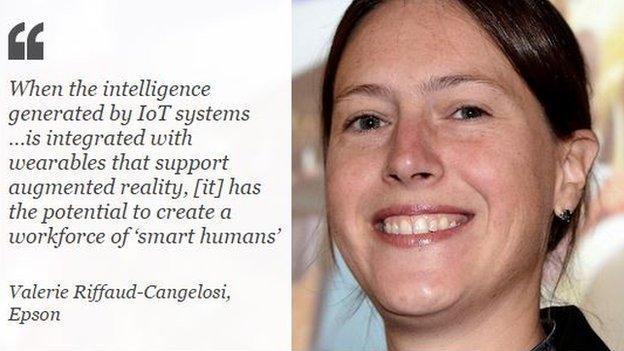
Michele Franci, chief technology officer at Inmarsat, sees "machine-to-machine" tech moving beyond industrial applications, such as utility infrastructure monitoring, and into agriculture, health, smart metering, and environmental research.
While Pete Baxter, UK country manager for software firm Autodesk, foresees our home appliances receiving software updates automatically and companies offering additional services on the back of the connected home concept.
This new world of "connected everything", says Tudor Aw, head of technology sector at consultancy KPMG, "should finally see real momentum in 2016", from connected cars recording driver behaviour data for insurance purposes, to smart watches and other wearables delivering health data and even initial diagnoses.
And all the data that these connected things generate will be stored, analysed and translated into practical insights using real-time analytics, enabling companies to "move beyond just quickly responding to changing customer needs, to actually anticipating those changes," says Andy Lawson, managing director at Salesforce UK.

Wearable devices could monitor our health and even make early diagnoses
Once these insights are incorporated into wearables that support augmented reality - smart glasses with digital displays, for example - we could become a "workforce of smart humans", says Valerie Riffaud-Cangelosi, new markets development manager at Epson.
This will enable us to solve problems on the go, she believes, and help us become more productive.
But many warn that greater connectivity means more points of entry for hackers constantly on the look-out for weak points in any network.
IoT cybersecurity concerns will also loom large in 2016.
The robots are (still) coming...
"From healthcare to space exploration and self-driving cars, business in 2016 will be powered by robotics," says Phil Cox, president of Silicon Valley Bank's UK branch. "Robots are already replacing surgeons and factory workers and even learning to say no."
Software versions of robots - artificial intelligence or AI - will also "replace manual, repetitive tasks", says Abdul Razack, head of big data and analytics at Infosys.
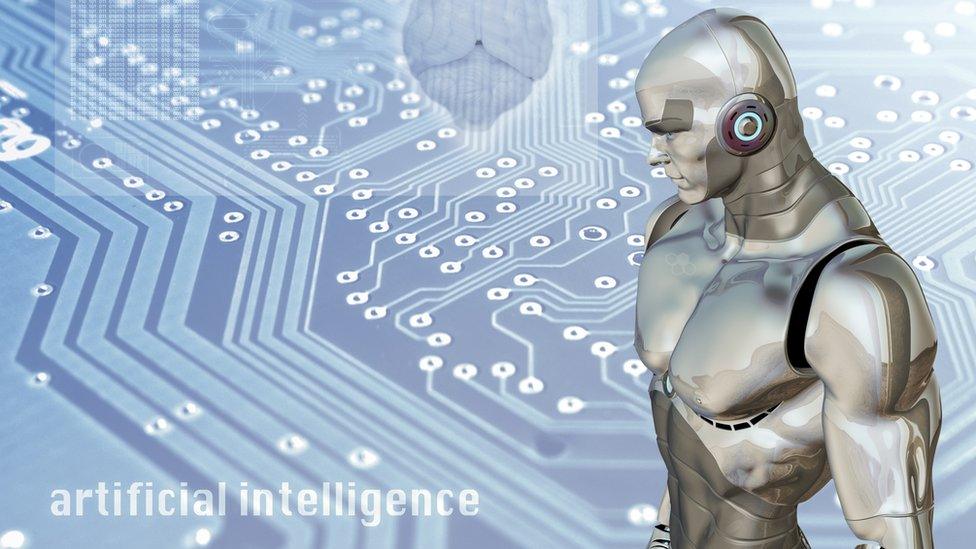
Artificial intelligence and robotics are likely to extend their influence this year, firms believe
This will change the way we work and make problem finding, rather than problem solving, become "one of the most coveted skills in organisations", he says.
More AI-powered virtual assistants will attempt to make us believe they are real - some might begin to succeed.
But rather that perceiving this rise of the machines as a threat to our livelihoods, Dave Coplin, Microsoft's chief envisioning officer, thinks we should see it as "augmenting, not replacing" us. We're back to the "smart humans" idea.
A mobile world
The mobile revolution will continue to roll on, with the smartphone becoming the primary tool for interacting with businesses and each other, observers believe.
"If you think mobile is here - it's not, it's still arriving," says Richard Wagstaff, managing director, of WSI, a digital marketing agency network.
Location-based services will proliferate, with consumers receiving highly targeted ads and special offers based on where they happen to be, right down to which part of a shop they are standing in.
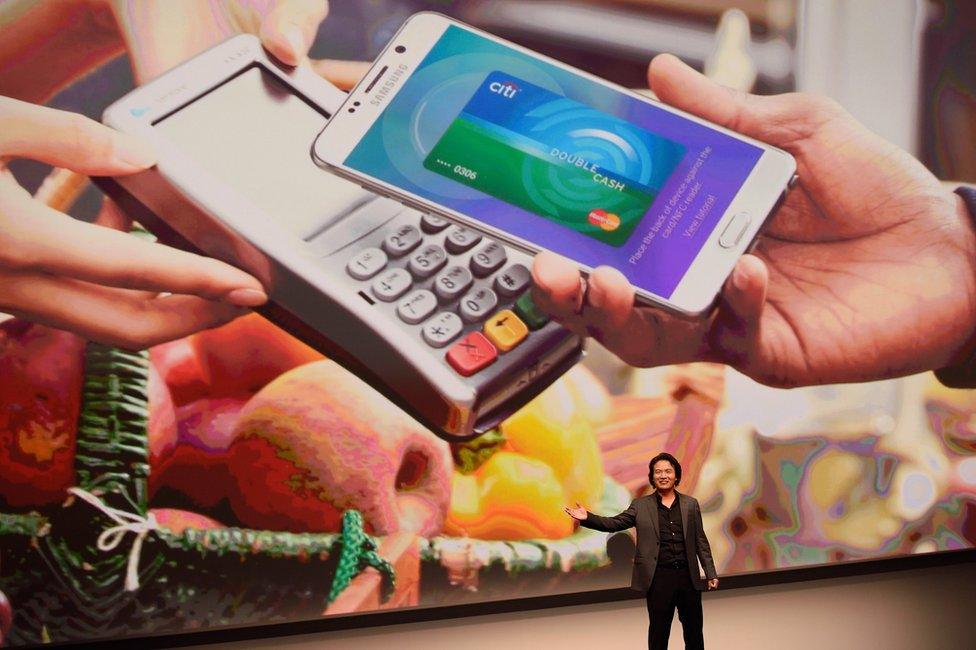
Payment by mobile will become ubiquitous this year, some firms believe
"Mobile payments will become ubiquitous", says Michael Kent, boss of digital money transfer service, Azimo. "Technology is democratising financial services."
Sub-$25 (£17) smartphones will extend mobile connectivity to lower-income people in developing economies, providing them new services and marketing opportunities for business.
Mobile and the information "any time, anywhere" paradigm will continue to change the way we work, and the way businesses serve us.
"We will find ourselves in a world where brands we never expected are selling us services and products we never would have imagined," says Ronan Dunne, chief executive of telecoms company, O2.
Follow Matthew on Twitter: @matthew_wall, external